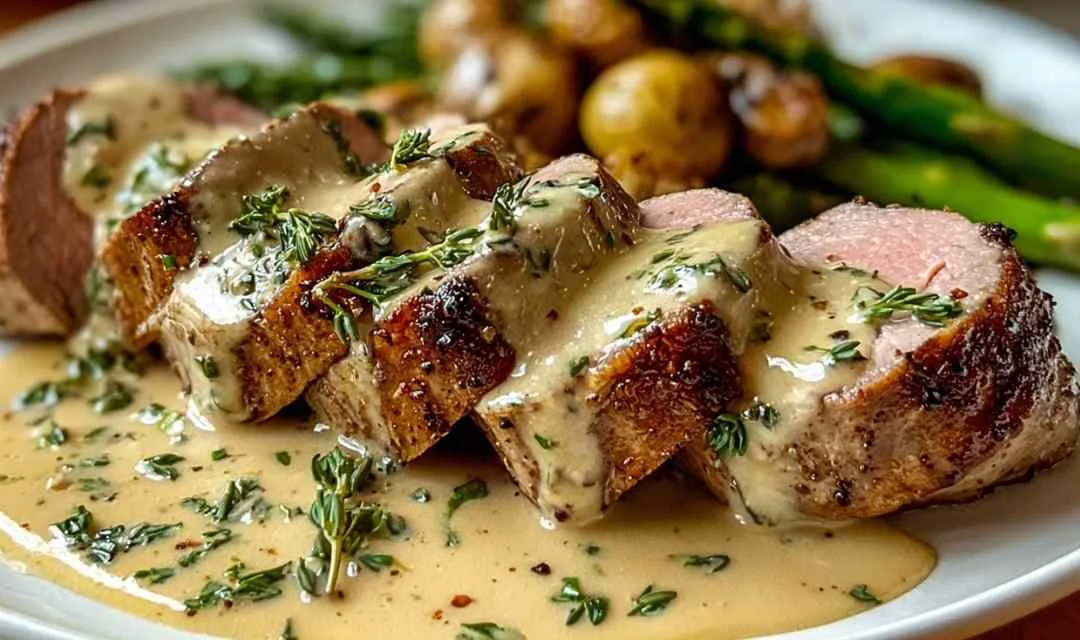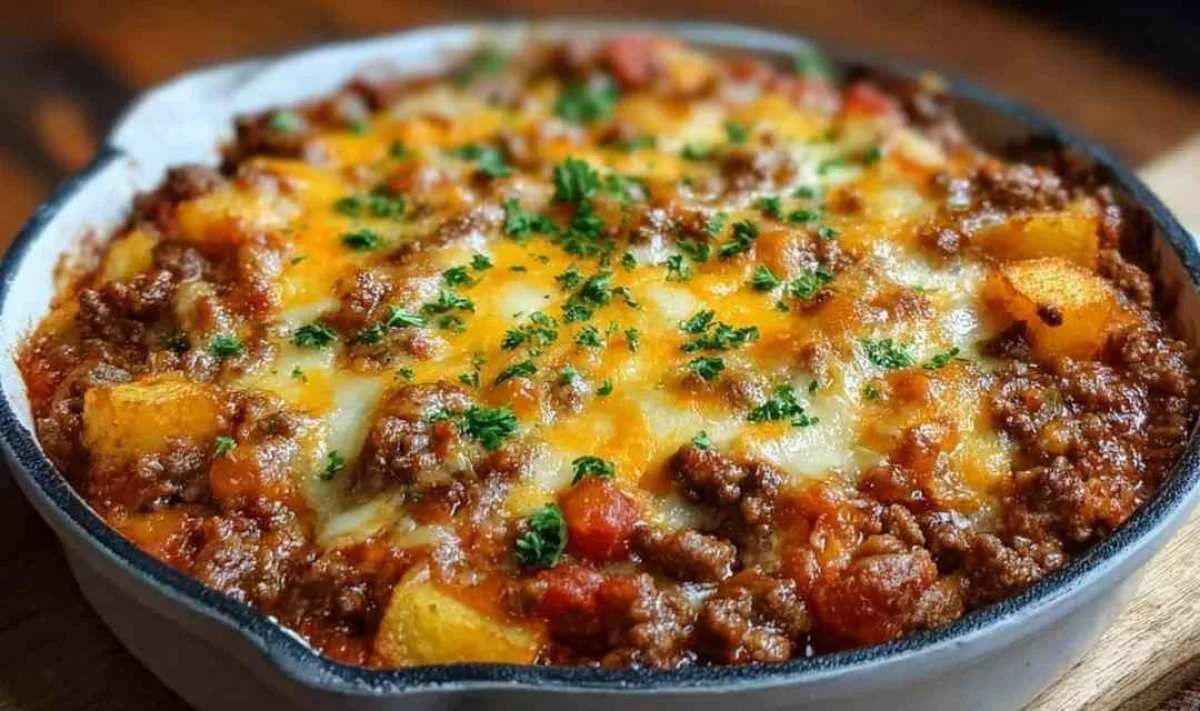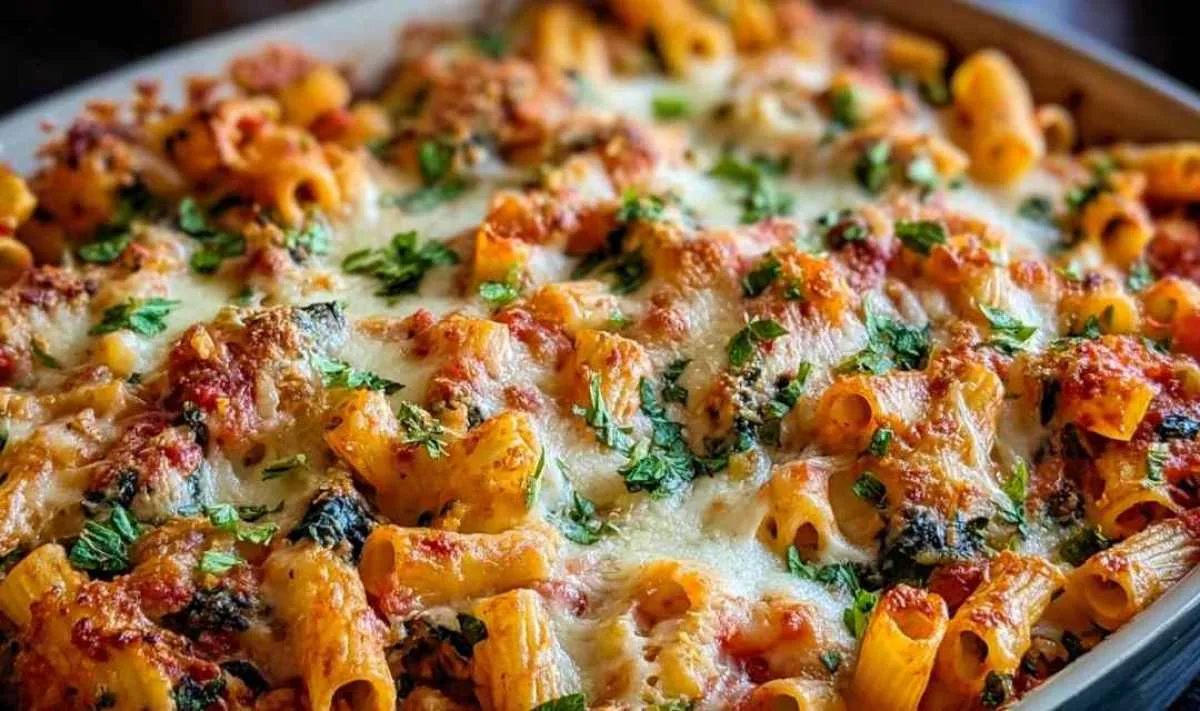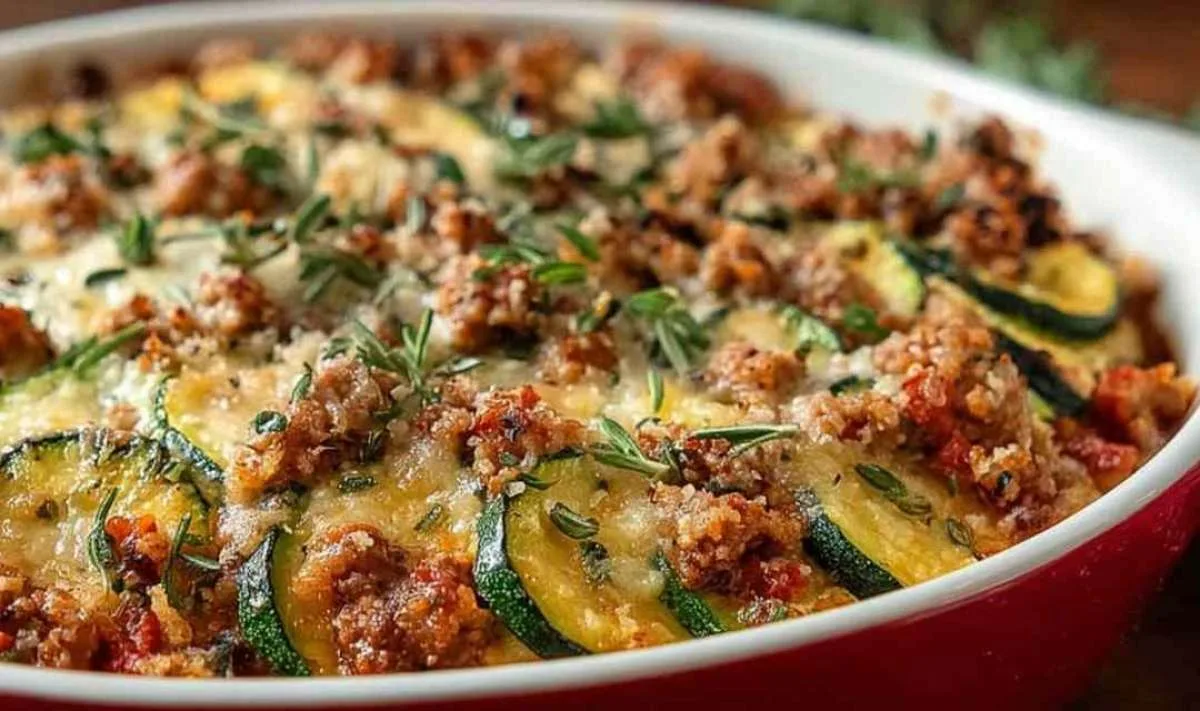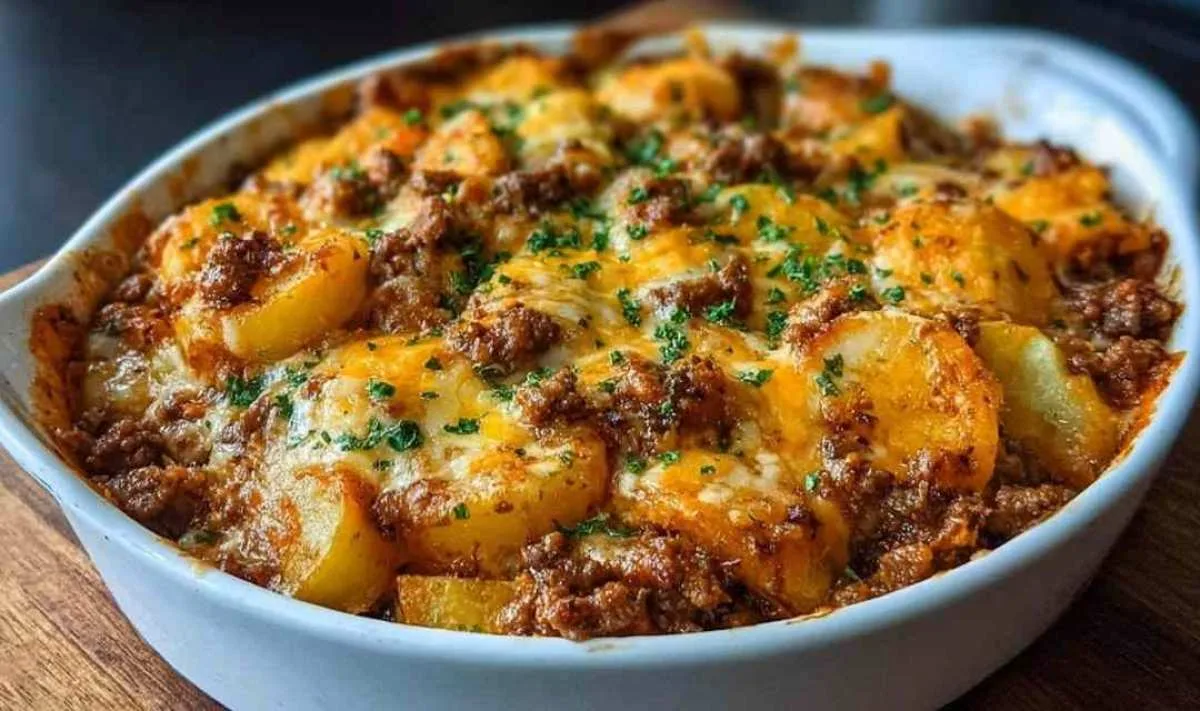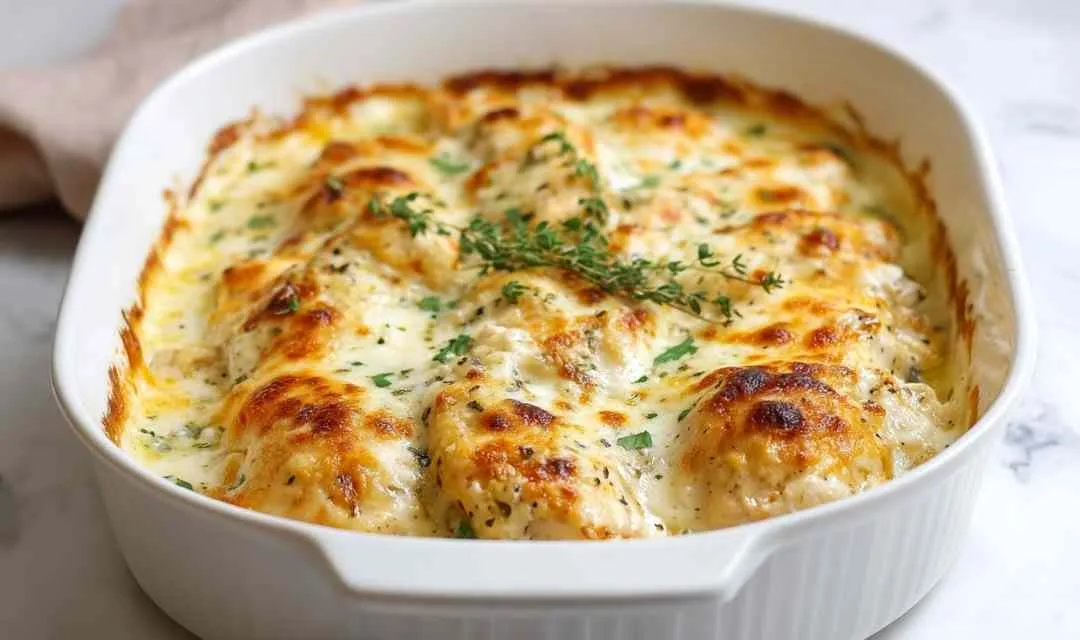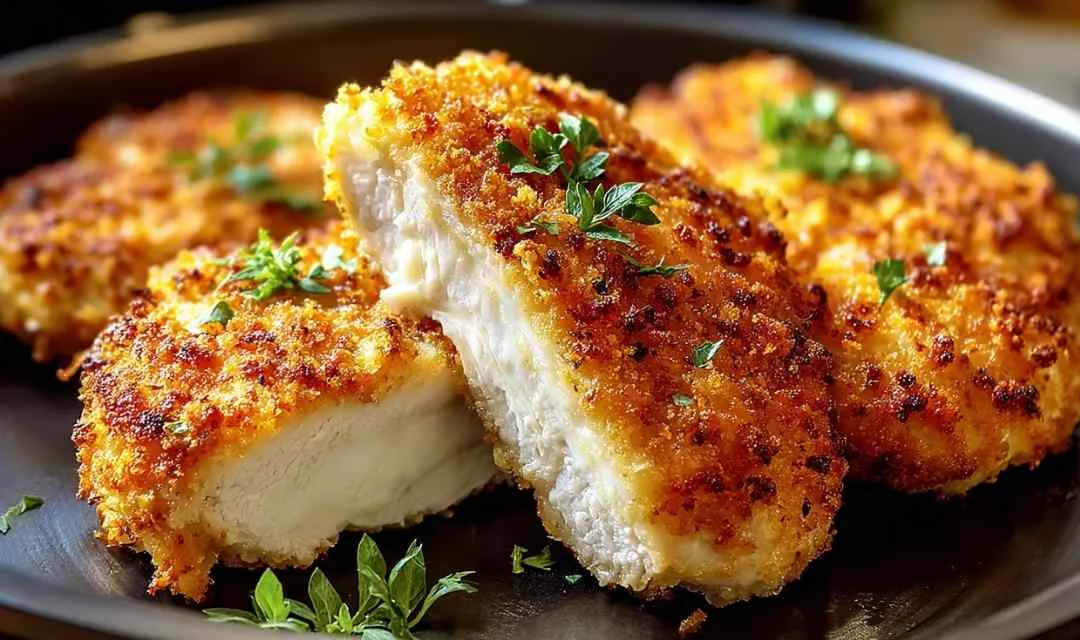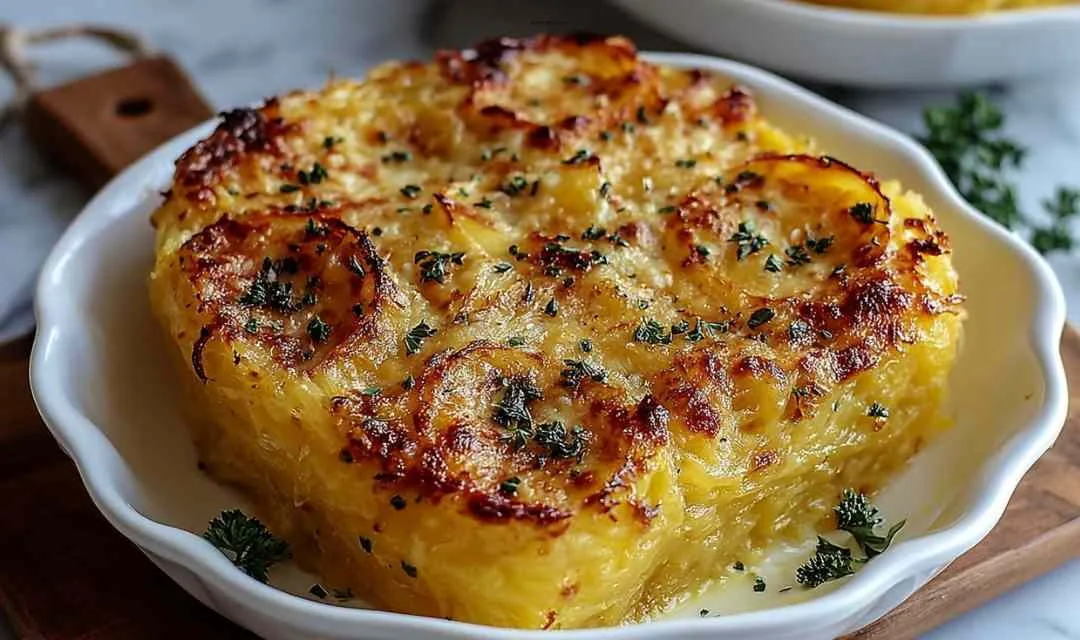Beef tenderloin with Dijon cream sauce transforms an ordinary Tuesday night into something special, and I’ve been perfecting this recipe for over three decades. There’s something magical about how the tangy mustard mingles with rich cream to create a sauce that makes even the pickiest eaters ask for seconds.
I still remember the first time I served this dish at a family gathering back in my farmhouse kitchen. My youngest grandson, who typically turned his nose up at anything fancier than chicken nuggets, took one bite and declared it “restaurant food, but better.” That day, watching him savor every morsel while cream sauce dripped down his chin, I knew this recipe deserved a permanent spot in our Sunday dinner rotation. The tenderloin stays incredibly juicy when you follow my tested method, and the sauce comes together in the same pan which means less cleanup and more time with loved ones. Your kitchen’s about to smell incredible.
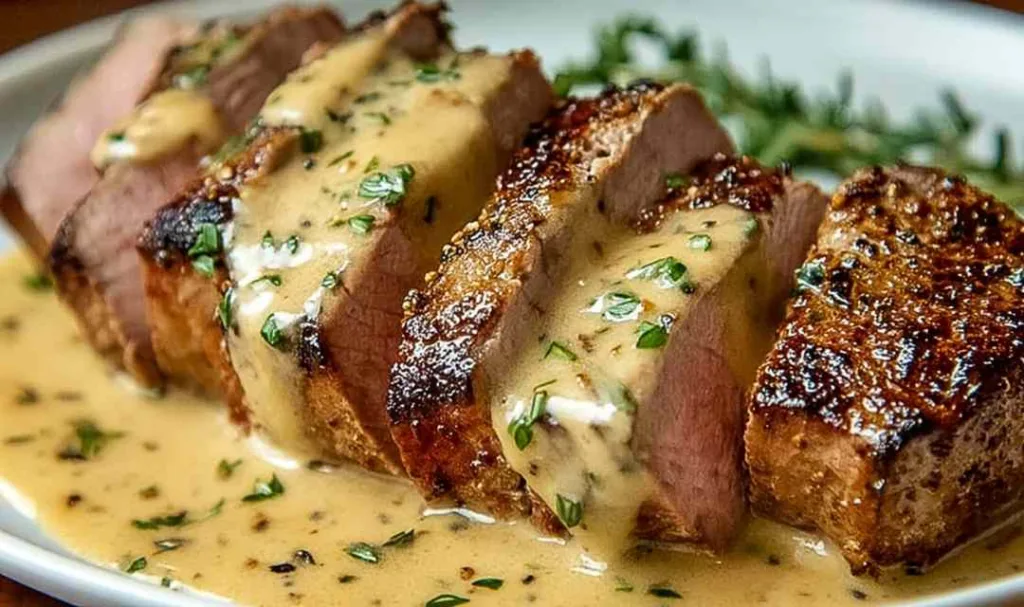
What Makes This Beef Tenderloin So Special
Every Sunday after church, I’d find myself in the kitchen preparing something that would bring the whole family together. This elegant beef dish quickly became our go-to for special occasions, and after years of tweaking and testing, I’ve discovered exactly what makes it work every single time.
Here’s why this beef tenderloin with Dijon cream sauce belongs in your recipe collection:
- Uses ingredients you likely have on hand – No special trips to gourmet stores required
- Comes together in just 30 minutes for those busy weeknight dinners when you want something impressive
- Delivers consistently tender, juicy results thanks to my foolproof searing and resting technique
- Adapts beautifully to different preferences – swap herbs, adjust mustard intensity, or serve with various sides
- Creates restaurant-quality flavor in your own home kitchen without complicated techniques
- Makes cleanup a breeze since the sauce develops right in the same pan
After decades of cooking for family gatherings, I’ve learned that the best recipes are the ones that make you look like a culinary genius while actually being quite forgiving to prepare.
Understanding Your Ingredients
The beauty of this recipe lies in how each simple ingredient plays its part in creating something truly memorable.
Beef tenderloin forms the heart of this dish because it’s naturally lean and tender, cooking quickly and evenly when treated with respect. I always choose tenderloins that feel firm to the touch and have a deep red color.
Dijon mustard provides the perfect balance of tang and heat that cuts through the richness of the cream. In my kitchen, I prefer grainy Dijon for extra texture, though smooth works beautifully too.
Heavy cream creates that luxurious sauce base that makes this dinner feel special. I’ve learned that letting it simmer gently prevents any curdling and helps it thicken naturally.
Fresh thyme adds an earthy, aromatic note that complements the beef beautifully. Rosemary works wonderfully as a substitute if that’s what your herb garden offers.
Garlic builds the flavor foundation of our sauce, and I always mince it fresh rather than using pre-chopped for the best taste.
Low-sodium chicken broth helps deglaze the pan and adds depth without overwhelming saltiness. I keep homemade stock in my freezer, but quality store-bought works perfectly.
Olive oil provides the fat needed for proper searing, creating that golden crust that locks in all the juices.
How to Make Beef Tenderloin with Dijon Cream Sauce
Creating this restaurant-quality dish in your home kitchen becomes simple when you follow the method I’ve refined over years of Sunday dinners.
Step 1. Betty always starts by preheating the oven to 425°F and patting the tenderloin completely dry with paper towels, then seasoning generously with salt, pepper, and rubbing Dijon mustard all over the surface.
Step 2. I’ve learned that heating olive oil in an oven-safe skillet over medium-high heat until it shimmers creates the perfect temperature for searing without burning.
Step 3. Sear the beef on all sides until golden brown, about 3-4 minutes per side – this step creates the flavorful crust that makes all the difference.
Step 4. Transfer the skillet directly to the preheated oven and roast for 10-15 minutes until the internal temperature reaches exactly 130°F for medium-rare on an instant-read thermometer.
Step 5. Remove the beef to a cutting board and let it rest for at least 10 minutes – after years of making this, I discovered this resting time ensures the juices redistribute throughout the meat.
Step 6. In the same skillet, sauté minced garlic until fragrant, then add chicken broth and scrape up all those beautiful browned bits from the bottom of the pan.
Step 7. Stir in heavy cream and remaining Dijon mustard, letting the sauce simmer gently until it thickens slightly, about 3-5 minutes.
Step 8. Slice the rested beef into medallions and arrange on plates, spooning the warm Dijon cream sauce generously over the top.
Tips for Perfect Results
Through decades of preparing this dish for family gatherings, I’ve learned several key techniques that ensure success every time.
Temperature Control: The key to perfect beef tenderloin lies in monitoring your temperatures carefully. I always remove the beef when it reaches 130°F for medium-rare, knowing it will continue cooking during the resting period.
Resting is Critical: Never skip the resting step. I cover the beef loosely with foil and let it rest for a full 10 minutes, which allows the juices to redistribute throughout the meat.
Pan Selection: Using an oven-safe skillet is essential because it allows you to sear on the stovetop and finish in the oven without transferring the meat, which could cause it to lose precious juices.
Sauce Timing: Start the sauce immediately after removing the beef from the pan while those beautiful browned bits are still warm and flavorful.
For those who enjoy experimenting with different beef preparations, my slow-braised beef short ribs offer another elegant option for special occasions.
Keeping This Beef Tenderloin Fresh
Proper storage ensures you can enjoy this delicious beef tenderloin with Dijon cream sauce beyond the initial serving, and I’ve discovered the best methods through years of managing leftovers from family gatherings.
Refrigerator Storage: I typically store leftover beef and sauce in separate airtight containers for up to 4 days. The meat maintains its texture better when stored apart from the cream sauce, which can be gently reheated and spooned over sliced beef when ready to serve.
Freezing Guidelines: While the cream sauce doesn’t freeze well due to potential separation, the cooked beef tenderloin freezes beautifully for up to 3 months when wrapped tightly in plastic wrap and placed in freezer bags. I recommend slicing it before freezing for easier portioning.
Reheating Methods: For the best texture, I reheat sliced beef in a 350°F oven for 10-15 minutes, covered with foil and a splash of broth to prevent drying. The sauce reheats gently on the stovetop over low heat, whisking occasionally to maintain its smooth consistency.
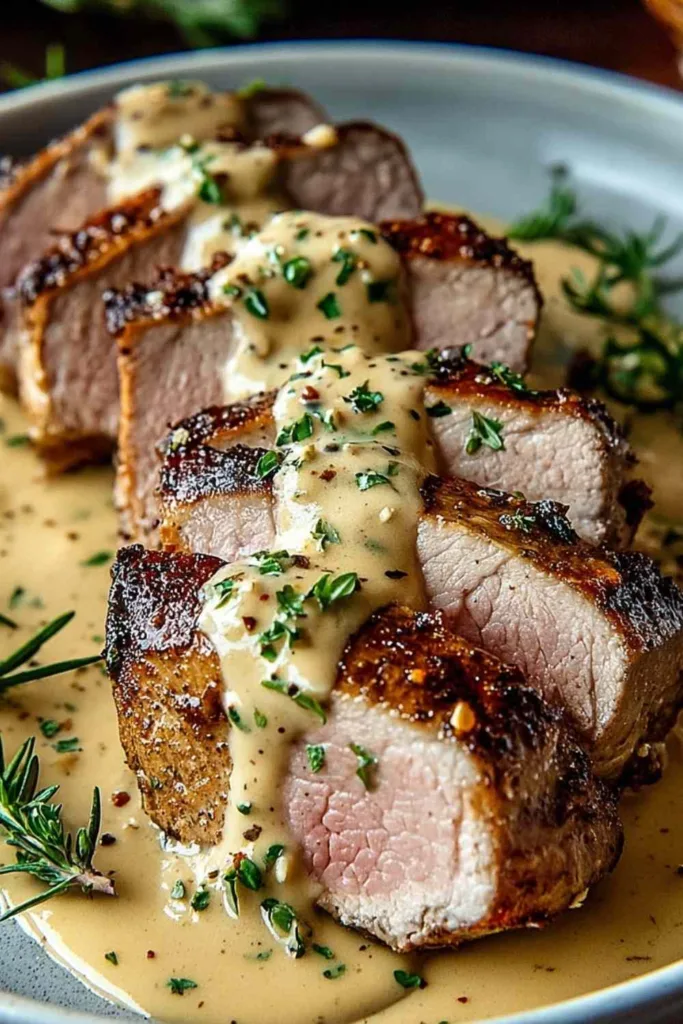
Perfect Partners for Beef Tenderloin with Dijon Cream Sauce
This elegant main dish pairs beautifully with sides that complement its rich, creamy flavors while providing textural contrast.
- Creamy scalloped potatoes – The creamy potatoes soak up every drop of that precious Dijon sauce
- Roasted Brussels sprouts with bacon – Their slight bitterness balances the richness perfectly
- Wild rice pilaf – Adds a nutty flavor and hearty texture that makes the meal more substantial
- Honey-glazed carrots – The sweetness plays beautifully against the tangy mustard notes
- Fresh green salad with lemon vinaigrette – Provides a bright, acidic contrast to cut through the cream
- Crusty dinner rolls – Essential for sopping up every last bit of that incredible sauce
Many home cooks find success serving this with roasted seasonal vegetables cooked alongside the beef in the oven, creating a complete one-pan meal that’s both elegant and practical. For a complete dinner party menu, consider starting with Christmas cranberry meatballs as an appetizer, or create an impressive Christmas tree charcuterie board for your guests to enjoy.
Make-Ahead Tips for Entertaining
When hosting dinner parties, I’ve found several ways to prepare components ahead of time without sacrificing quality.
You can season the beef tenderloin up to 24 hours in advance and refrigerate it covered. This actually improves the flavor as the seasonings penetrate the meat. Remove it from the refrigerator 30 minutes before cooking to bring it to room temperature.
The sauce base can be prepared earlier in the day. Simply sauté the garlic and add the broth, then refrigerate. When ready to serve, reheat the base and whisk in the cream and mustard.
For a stress-free dinner party, sear the beef earlier in the day, then finish it in the oven just before serving. This timing allows you to focus on your guests while still delivering a perfectly cooked main course. If you’re planning a complete holiday feast, consider pairing this with Christmas stuffed beef tenderloin for variety.
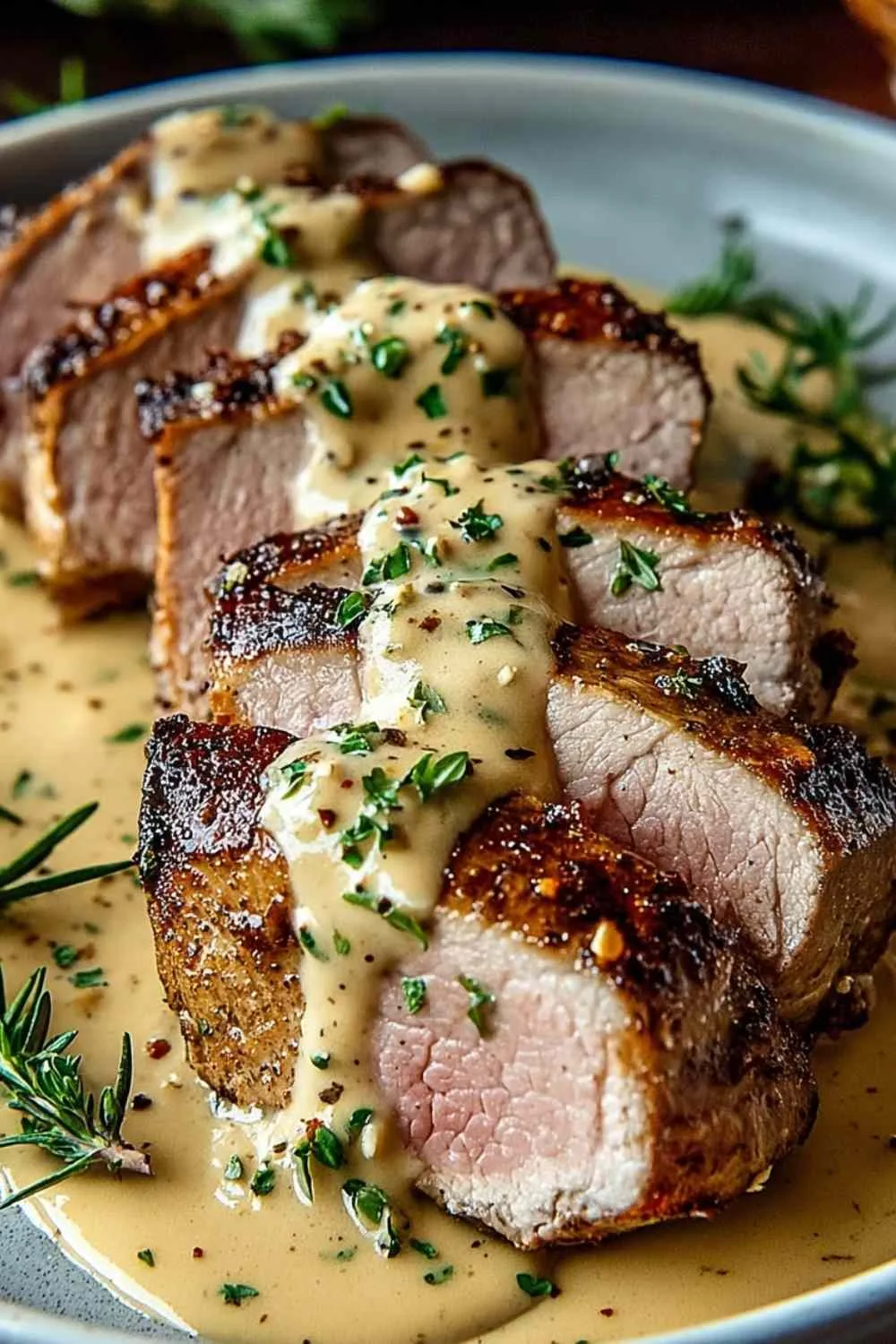
Best-Ever Beef Tenderloin with Dijon Cream Sauce
Ingredients
Equipment
Method
- Preheat oven to 425°F and lightly spray a baking dish with nonstick cooking spray. Pat the beef tenderloin dry and rub all sides with salt, pepper, and Dijon mustard.
- Heat olive oil in an oven-safe skillet over medium-high heat. Sear the beef on all sides until golden brown (about 3-4 minutes per side).
- Transfer skillet to the oven and roast for 10-15 minutes until the internal temperature reaches 130°F for medium-rare.
- Remove beef and let rest for at least 10 minutes. In the same skillet, sauté minced garlic until fragrant, then add chicken broth, scraping up browned bits.
- Stir in heavy cream and remaining Dijon mustard. Simmer sauce gently until slightly thickened, about 3-5 minutes.
- Slice rested beef into medallions and serve with sauce drizzled on top.
